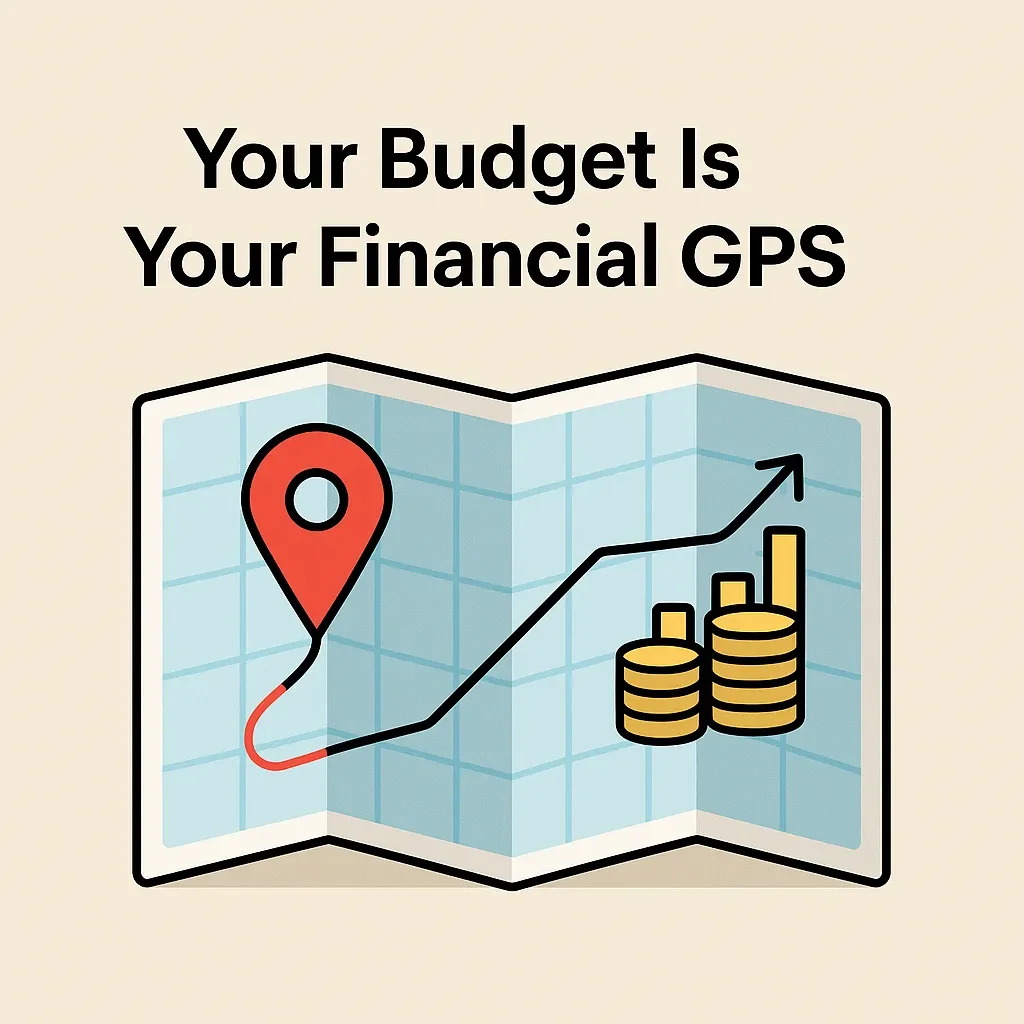Your Budget Is Your Financial GPS
Building margin, funding your future, and making your money reflect what matters
When people talk about money, everyone wants to skip to the fun bits — stocks 📈, pensions 🏦, maybe even property 🏡.
But that’s not where the journey really starts.
Before you can build wealth, you need to know where your money is going. If you skip that, your savings and investments just end up acting like another current account you dip into. And when that happens, your money never gets the chance to really work for you.
🤔 Why Budgets Feel “unsexy” (but matter the most)
That’s where a budget comes in. Shock horror 😱 — I know, most of us have negative feelings about budgets. They sound restrictive, boring, even a little stressful.
But what if a budget was less about limits and more about direction? A reminder of what’s actually important to you. Because without one, money will happily drift into Uber Eats, new trainers , or random Amazon purchases. With a budget, you give your money purpose.
And here’s the reality: whether you earn £1,000 a month or £20,000 a month, you still need to know where your money is going. Otherwise, it leaks away like water through a cracked pipe 💧.
Those leaks don’t stop just because your income goes up. In fact, the higher your earnings, the easier it is for lifestyle creep to swallow the difference — the small upgrades, extra takeaways, or “I deserve this” splurges that quietly eat away at your margin. Before long, the extra income has disappeared, and you’re back at square one wondering why it still feels tight.
📊 Treat Your Household Budget Like a Business
Governments and corporations all run budgets. They spend months preparing them before a financial or calendar year kicks off. Why? Because without a plan, they risk running out of money, overspending, or missing goals.
Or as the bible puts it “Which of you, wanting to build a tower, doesn’t first sit down and estimate the cost to see if he has enough to complete it?” (Luke 14:28).
In other words — whether it’s building a tower or building wealth, you don’t start until you’ve counted the cost. If billion-dollar organisations (and ancient wisdom) take planning this seriously, maybe it’s worth us doing the same at a household level.
➕ How to Calculate Your Budget
So how do you actually do a budget? It starts with two simple steps:
List your income → salary, benefits, side hustles, or any regular extras.
List your expenses → rent/mortgage, bills, food, transport, subscriptions, debt repayments, and spending money.
Then use the formula:
Income – Expenses = Margin
That number is your reality check.
🔑 The Power of Margin
Once you’ve worked out your margin, you can see exactly where you stand:
✅ Positive margin → You have room to save, invest, or accelerate debt repayment.
⚖️ Zero margin → You’re treading water. One unexpected bill could pull you under.
❌ Negative margin → Your lifestyle is outpacing your income, and something has to shift.
Margin = freedom. It’s the breathing space between surviving and progressing. The bigger it gets, the more choices you have — and the faster you can move toward wealth.
👉 No margin, no progress.
💡 From Margin to Paying Yourself First
The whole point of creating margin is so you can start paying yourself first. That’s when your budget stops being a tracking tool and starts becoming a wealth-building tool.
Paying yourself first means deliberately setting money aside for your future before anything else. It might look like:
📈 Investing for the long term
🌧️ Building a rainy-day or emergency fund
🎯 Saving for a specific future goal
At its core, it’s about forgoing a little enjoyment today so you can secure far more tomorrow. It’s like putting your oxygen mask on first on a plane ✈️ — if you don’t look after your financial future, you’ll always be playing catch-up.
🛠️ Tools to Make Budgeting Easier
You don’t have to track your budget on the back of an envelope. There are plenty of tools out there — from free to fancy. A few worth trying:
📊 Excel or Google Sheets → free templates that make it easy to see every pound in and out.
📱 Monzo or Starling → great for splitting money into digital “pots,” like modern-day envelopes.
📱 Apps → Emma (tracks spending + subscriptions), Snoop (finds savings + spending insights).
💡 Paid templates → nice to have, but the free ones work just as well.
The key isn’t finding the “perfect” tool — it’s picking the one you’ll actually use.
Final Thoughts
So yes, have a budget. But don’t stop there. Build one that creates space for your future self. Because at the end of the day, your budget isn’t about restriction — it’s about direction.
It’s your financial GPS. Without it, money drifts. With it, you’re telling your money what to do.
👉 Sit down this week, run the numbers, and find your margin. That number is your truth — and the first step to building wealth on purpose.
Toyosi

